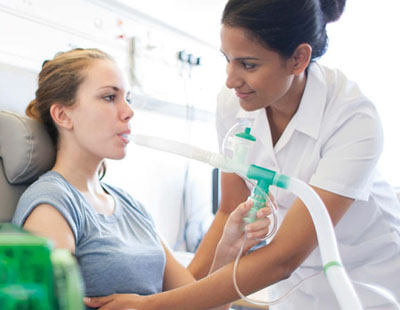BioQuarter researchers lead national centre to tackle rare lung diseases

A £9.4 million collaborative research centre will accelerate improved tests, treatments and potentially cures for thousands of people living with rare respiratory diseases.
The LifeArc Centre for Rare Respiratory Diseases will unite children, adults and families affected by relevant conditions with clinical experts, researchers, investors and industry leaders.
The Centre’s experts will work in collaboration, aiming to overcome some of the barriers that can prevent new tests and treatments reaching patients with rare diseases.
Globally, there are more than 300 million people living with rare diseases, of which one in 20 are related to respiratory conditions. While rare on their own, collectively they represent significant social and economic costs.
The new centre will focus on rare lung diseases to accelerate diagnosis and development of much-needed therapies. The centre is a partnership between Universities and NHS Trusts, co-led by Edinburgh with partners in Nottingham, Dundee, Cambridge, Southampton and at University College London. It is supported by six other clinical partners in Belfast, Cardiff, Leeds, Leicester, Manchester and at Royal Brompton.

The collaboration will create a UK-wide bank of anonymised tissue samples and models of disease, allowing researchers to advance pioneering therapies.
It will work to lower the risk of investment in rare respiratory disease research, building the partnerships and innovative infrastructure needed for clinical trials in patients with rare conditions.
The centre team also aims to boost public awareness of the realities of living with rare respiratory diseases and raise patient awareness of resources that can improve their quality of life.
The centre, funded by the not-for-profit medical research charity LifeArc, is led by Professor Kev Dhaliwal, Professor of Healthcare Technology at the University of Edinburgh’s Institute for Regeneration and Repair and Honorary Consultant in Respiratory Medicine at the Royal Infirmary of Edinburgh, NHS Lothian.
It is supported by patient groups including Action for Pulmonary Fibrosis, Childhood Interstitial Lung Disease, LAM Action, PCD Research and PCD Support UK.
Professor Kev Dhaliwal, LifeArc Centre for Rare Respiratory Diseases said: ” Patients and their families are at the heart of our centre. By bringing together the four UK nations’ community of researchers, patient groups, clinical experts, NHS trusts and by coalescing industry, investors and wonderful colleagues around the world, we are sharing resources and committed to developing new therapies for everyone afflicted with rare lung disease. We are very grateful to LifeArc for supporting the centre on our journey of collaboration across the UK with a mission and purpose to innovate and translate for patient benefit.”
Rare disease research can be fragmented, with scientists and stakeholders lacking access to the specialist facilities, advice and resources needed to deliver new innovations to patients.
The LifeArc Centre for Rare Respiratory Diseases is one of four new centres to be funded by the non-profit medical charity LifeArc, seeking to address these issues.
Dr Catriona Crombie, Head of Rare Disease at LifeArc said: ” We’re extremely proud to be launching four new LifeArc Translational Centres for Rare Diseases. Each centre has been awarded funding because it holds real promise for delivering change for people living with rare diseases. These centres also have the potential to create a blueprint for accelerating improvements across other disease areas, including common diseases.”
LifeArc Translational Centres for Rare Diseases
Thousands of people living with rare medical conditions will get access to improved tests, treatments and potentially cures, following the creation of four new LifeArc Translational Centres for Rare Diseases.
The virtual centres will focus on areas where there are significant unmet needs. They will tackle barriers that ordinarily prevent new tests and treatments reaching patients with rare diseases and speed up the delivery of rare disease treatment trials. The centres will bring together leading scientists and rare disease clinical specialists from across the UK for the first time; encouraging new collaborations across different research disciplines and providing improved access to facilities and training. Read more



